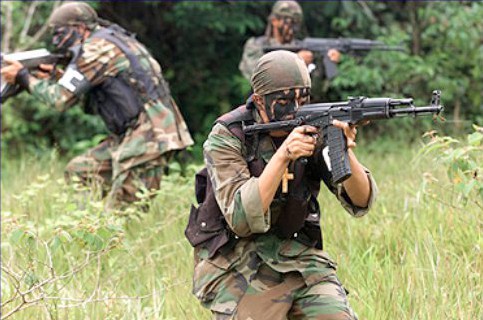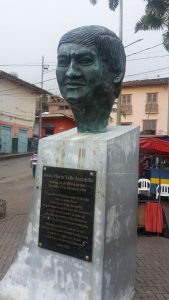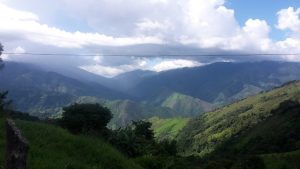
Photo: Silvia Andrea Moreno
Colombia’s Supreme Court has found that a series of paramilitary massacres against civilians in the department of Antioquia that occurred in the late 90s, when former President Álvaro Uribe was then Governor of Antioquia, are “crimes against humanity.”
By labelling them as “crimes against humanity” on Thursday, the court of last appeal opens the door for any responsibility for the brutal killings now being actionable in court despite exceeding the statute of limitations–a time limit that would usually prevent crimes from being tried in court.
The judicial proclamation was related to a series of killings between 1996-1998 where paramilitary groups carried out massacres in the northern villages of El Aro, La Granja in the Ituango province and the more central province of San Roque.
In addition to the terror inflicted on the local populace, the Supreme Court also isolated the murder of community leader Jesús María Valle in Medellín, who had spoken out strongly against the crimes being perpetrated in the region, as being included among the crimes that may be investigated. To this day a bust of the leader appears in Ituango’s town square facing the prominent police fortress across it.

Bust of Jesús Mariá Valle in Ituango- Photo: Arjun Harindranath
The extraordinary development is a major declaration on Uribe’s conduct as governor since the massacres occurred and is seen by some as an important step forward for the victims of the killings.
Uribe himself responded to the Supreme Court’s judgment by tweeting “”I have asked [my lawyer] Dr Jaime Granados to withdraw the request to annul proceedings against me, my rule is that they investigate me quickly. No delay on my part. I want to continue looking for the proof without manipulating witnesses, as my detractors would allege.”
Despite the bloodbath that occurred in the region, Uribe’s popularity never waned in the province of Ituango in the former FARC stronghold. Uribe went on to win two terms as president and has always won in Ituango due to strong anti-FARC sentiment in the region.
In the first-round of this year’s elections held last Sunday Iván Duque, Uribe’s chosen candidate for Centro Democrático, took the most votes in the village with 1,653, followed extremely closely behind by Sergio Fajardo with 1,531 votes. San Roque on the other hand, the site of a massacre that took place in 1996, gave Duque a more resounding victory with 4,676 votes. Second-place Fajardo had 912 votes in comparison.

Canyon of La Granja, a region in the province of Ituango that was the site of a paramilitary massacre in 1996. Photo: Arjun Harindranath
The news of the judicial pronouncement caps off a difficult week for the former president after diplomatic cables were declassified and revealed in a New York Times article suggesting ties between Uribe and the infamous Medellín cartel. Uribe dismissed the unearthed documents as “fake news”.
It is however unlikely that any action against Uribe can be concluded prior to the last round of the presidential elections on June 17. Uribe’s candidate Duque is currently leading in the polls against leftist candidate Gustavo Petro by 20 points and, given the support that Uribe continues to enjoy in Colombia, it remains to be seen what effect a judicial ruling like this one will have on the final result.





